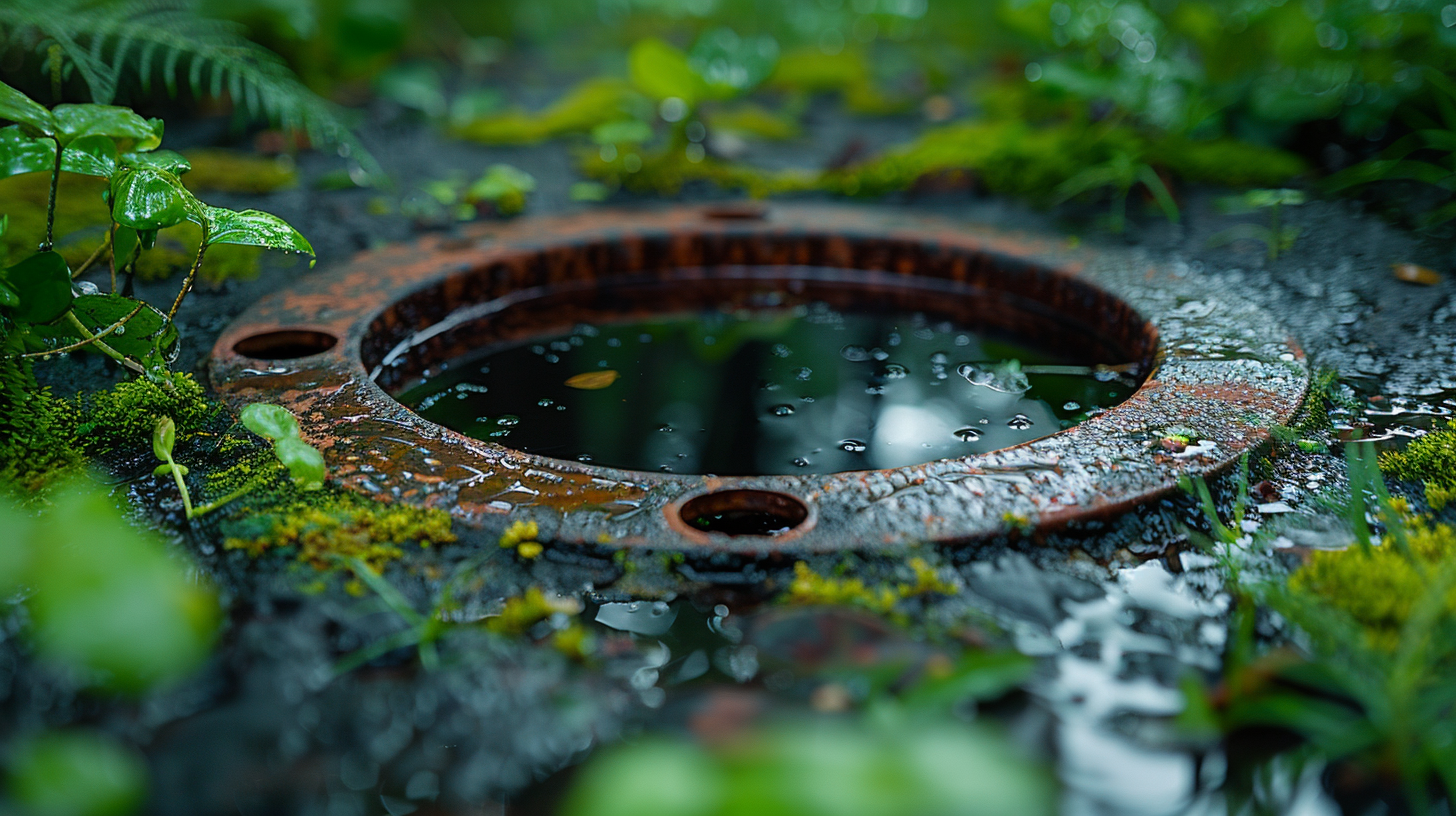Key Points
• Waste Piling Up: Without regular pumping, a septic tank can get too full. The piled-up solids break down and make bad smells like hydrogen sulfide, methane, and carbon dioxide. When these stinky gases get out, they make the air around the tank smell awful.
• Bad Venting: Septic tanks need to vent out gases to stop pressure from building up. If something blocks the vents or they’re not working right, gases get trapped. Then, they might leak out near the tank, and you’ll get a whiff of something nasty in the area.
• Broken System: If there’s a crack, hole, or other damage to the septic tank or parts of it, odors could slip through. A worn-out seal or a hole in the tank—even busted pipes—can let sewer gases creep up to the ground level.
Contents
- 1 Key Points
- 2 Understanding Septic Tank Smells
- 2.1 What’s in Septic Tank Stink?
- 2.2 Rotten Egg Gas and Sulfur
- 2.3 Ammonia and Nitrogen Stinks
- 2.4 Bacteria and Odor Production
- 2.5 Oxygen-Free Breakdown
- 2.6 Bacteria Eating and Farting Out Gases
- 2.7 Overflowing Tanks
- 2.8 Damaged Tanks Leaking Odors
- 2.9 Vent Problems and Gas Escape
- 2.10 Waterlogged Drain Fields
- 2.11 Finding The Stink Source
- 2.12 Checking Out Your Septic System
- 2.13 Smell Detection Tools
- 3 Regular Maintenance and Pumping Schedules
- 4 Improving Ventilation Systems
- 5 Fixing Problems with Drain Fields
- 6 Biological Additives and Their Efficacy
- 7 Rules and Smart Ways to Tackle Bad Smells
- 8 Fixing Bad Smells from Home Septic Systems
- 9 Local Septic System Solutions
- 10 New Septic System Features To Cut Down Smells
- 11 Frequently Asked Questions (FAQ)
Understanding Septic Tank Smells
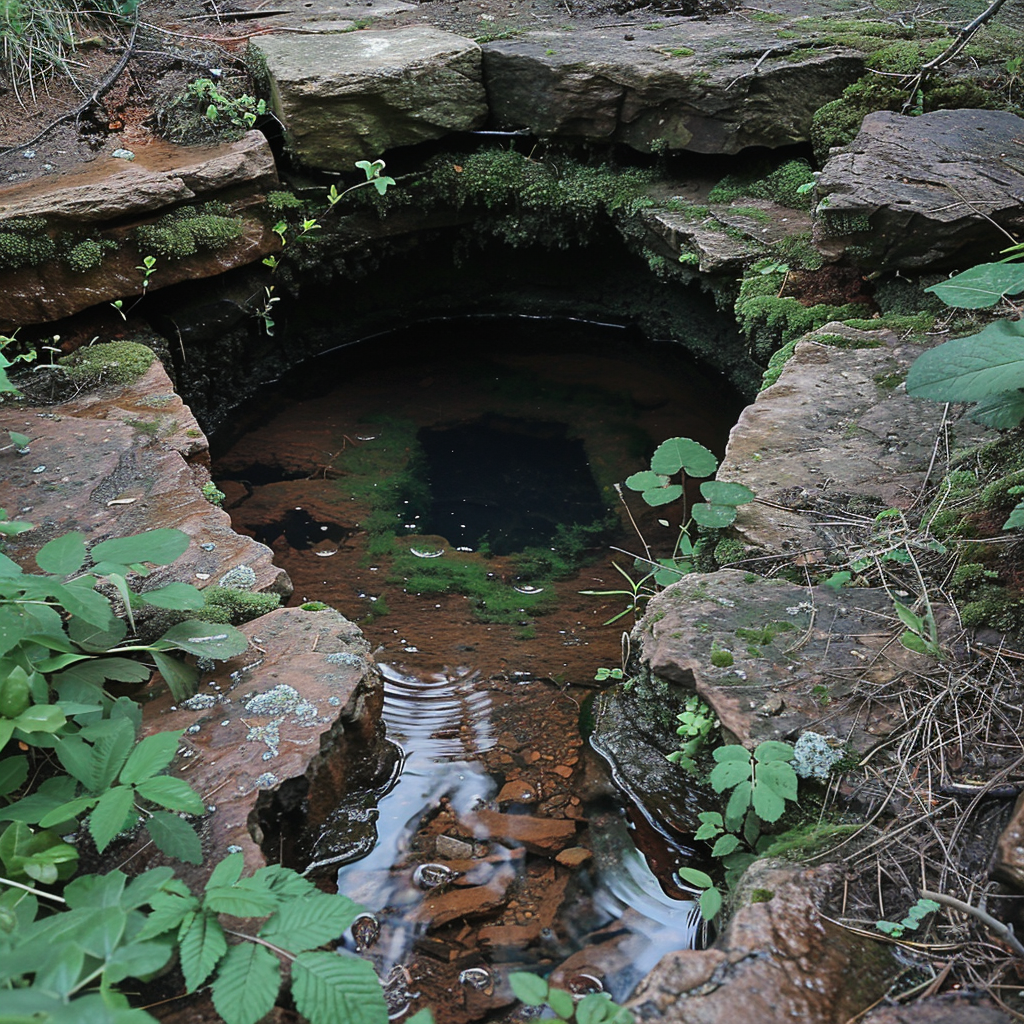
Septic tanks can get smelly for many reasons. Often it’s because gases like hydrogen sulfide, methane, and carbon dioxide build up and leak out. This stink isn’t just a nuisance; it might hint at a bigger issue needing fast attention.
If you notice a bad smell outdoors, your septic system could be to blame. But what causes this? Several substances contribute to the odor, which normally stay hidden underground in a well-functioning system. However, if there’s a problem, these gases can escape, and that’s when you’ll start noticing the smell. Let’s look at the science behind these stinky emissions.
What’s in Septic Tank Stink?
A typical septic smell is made up of several gases that come from decomposing waste. You’ve got methane, carbon dioxide, and other odorous components in there. Essentially, they’re byproducts of natural decay, but specific chemicals really kick up the stench.
Rotten Egg Gas and Sulfur
Ever smell rotten eggs? That’s hydrogen sulfide for you – a big part of what makes septic tanks smell bad. It’s produced by bacteria that live without oxygen, eating organic material and sulfur then releasing hydrogen sulfide as waste. This gas is also common in natural hot springs and volcanic areas. Other sulfur compounds also add to the stench, thanks to different bacteria in your septic tank.
Ammonia and Nitrogen Stinks
Ammonia is another culprit for unpleasant odors, produced by bacteria breaking down nitrogen-rich things like urine. Its sharp smell is familiar from some cleaners or sad-looking bathrooms. Combined with other gases, ammonia contributes to strong smells that might drift from your septic tank if it’s not managed properly.
Bacteria and Odor Production
The biological side of these odors is quite interesting. Bacteria feast on waste in your septic tank, breaking down solids in an environment without air. This process is vital for making the waste safe before it goes back to nature.
Oxygen-Free Breakdown
Anaerobic decomposition happens without any oxygen. This is key for a septic tank’s operation. Inside the tank where there’s no air, anaerobic bacteria work hard to break down materials, but their byproducts are pretty foul-smelling.
Bacteria Eating and Farting Out Gases
Bacterial metabolism is the heart of gas production in your septic system. Tiny organisms eat waste and release gases as part of their life cycle. If there’s too much waste or something else is wrong in the tank, they make more gas than usual. If there’s a leak or crack somewhere, those gases will slip out into your yard.
Overflowing Tanks
When septic tanks are too full or deal with more waste than they should, they can start smelling bad. If solid waste doesn’t settle right because the tank is overstuffed, overflow happens and odors can escape, especially if the tank isn’t pumped as needed.
Damaged Tanks Leaking Odors
Cracks or damage to the tank can lead to odors spreading around outside. These problems might come from bad maintenance, ground movement, or just an old tank. Besides smelling bad, damaged tanks raise the alarm for polluting groundwater. Inspections can find these leaks that need quick fixes to prevent stinks and environmental harm.
Vent Problems and Gas Escape
A good ventilation system helps get rid of gases safely. If vents are blocked or not working right, gases will seek other ways out – usually where they shouldn’t be. Fixing blocks and making sure vents are working well will help stop those stinks.
Waterlogged Drain Fields
Your drain field can also cause outdoor odors if it’s too wet – maybe from using too much water – causing mess-ups in processing the waste water. Bad smells come up if contaminants aren’t broken down right. Watching water use and drain field health can keep this problem in check.
Getting rid of stinks from septic tanks is important for a nice living space. You’ve got to find where exactly the smell is coming from so you can handle it properly. A good look at the entire septic system can spot any troubles or damages making things smelly.
Finding The Stink Source
Bad smells can come from many places in a septic system – blocked vents, dry pipes or even just being too full. Snooping out the cause is key to fixing it. For instance, clogged vent stacks designed to move gases above the roof could send them into your home instead.
Checking Out Your Septic System
To find out why your septic tank stinks, a pro will start with a visual check of the tank, pipes, and dirt around it for leaks or overflow signs. They’ll also look for blocked pipes or vents that could hold in odors. Sometimes heavy water use or busted seals strain the system causing smells to leak.
Smell Detection Tools
Experts have tools just for figuring out how bad smells are and what’s causing them – from “sniff tests” by experienced noses to high-tech gadgets finding specific smelly molecules. Picking a tool depends on how complex the situation is; getting a precise read on odor strength and makeup helps come up with a plan.
Remember, dealing with septic system issues means you should talk to professionals with the right know-how to make sure the system does its job correctly and meets environment guidelines.
Regular Maintenance and Pumping Schedules
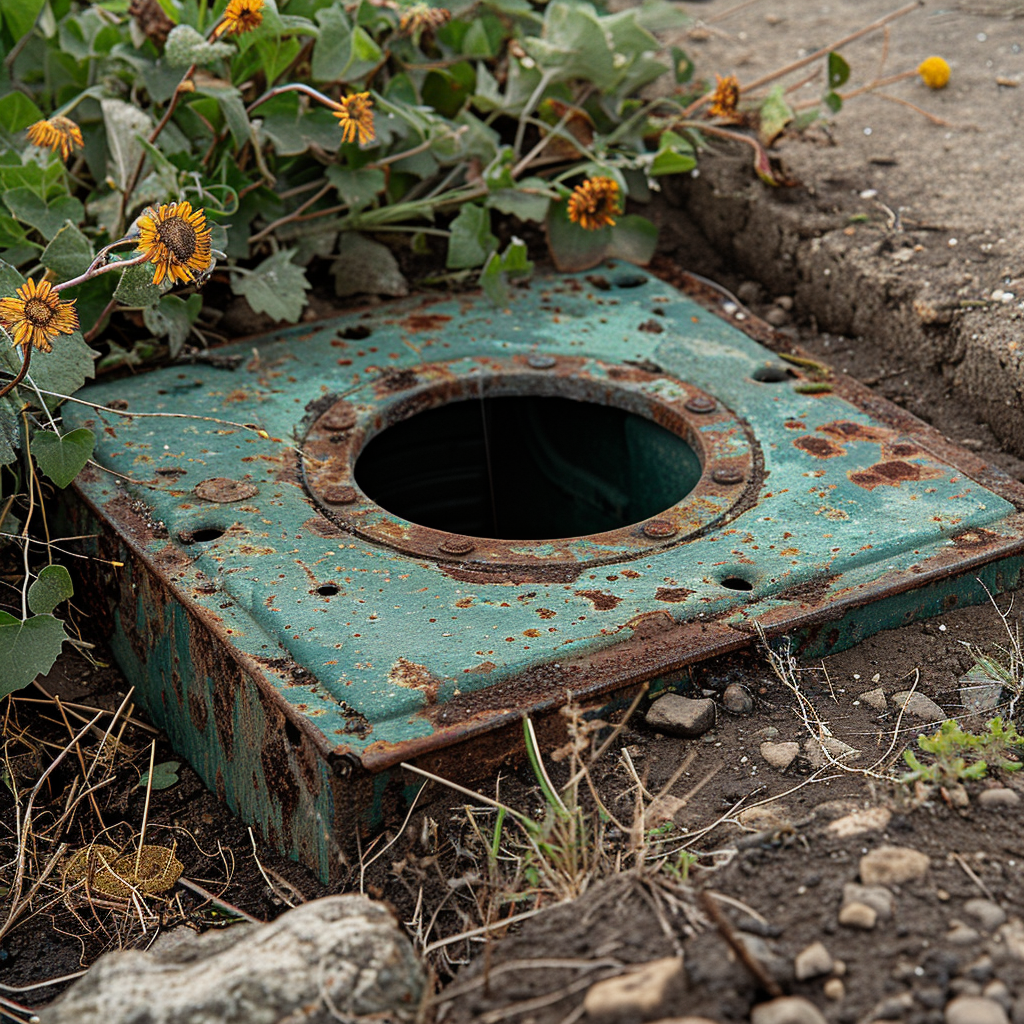
To keep a septic system working well, you need to stick to a regular maintenance plan. The owner of the septic tank must set up routine checks to find and fix any problems. These check-ups usually involve checking how much sludge is in the tank, looking for leaks, and making sure the system is overall healthy. Also, it’s important to empty the septic tank when it’s time, which is generally every three to five years. But this can change depending on things like how big the tank is, how many people live in your house, and how much you use the system.
Improving Ventilation Systems
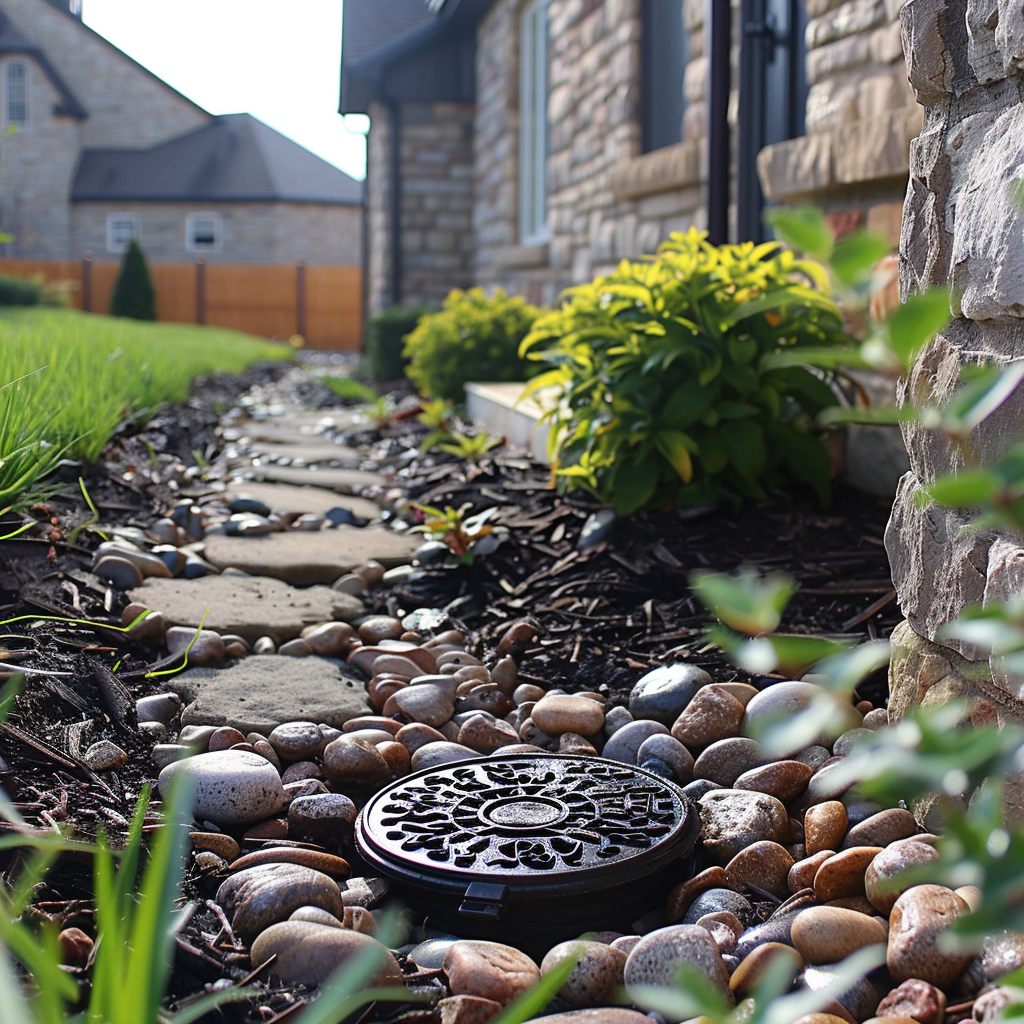
Good airflow is essential for keeping bad smells from septic tanks under control. For a septic system to work well, it needs the right amount of air moving through it to keep smelly gases from building up. To improve ventilation, make sure the vents are designed and installed correctly.
If vent pipes are clogged or not doing their job, clearing them could get rid of stinky smells. Also, using charcoal filters and making pipes taller can help tackle any remaining odor problems.
Fixing Problems with Drain Fields
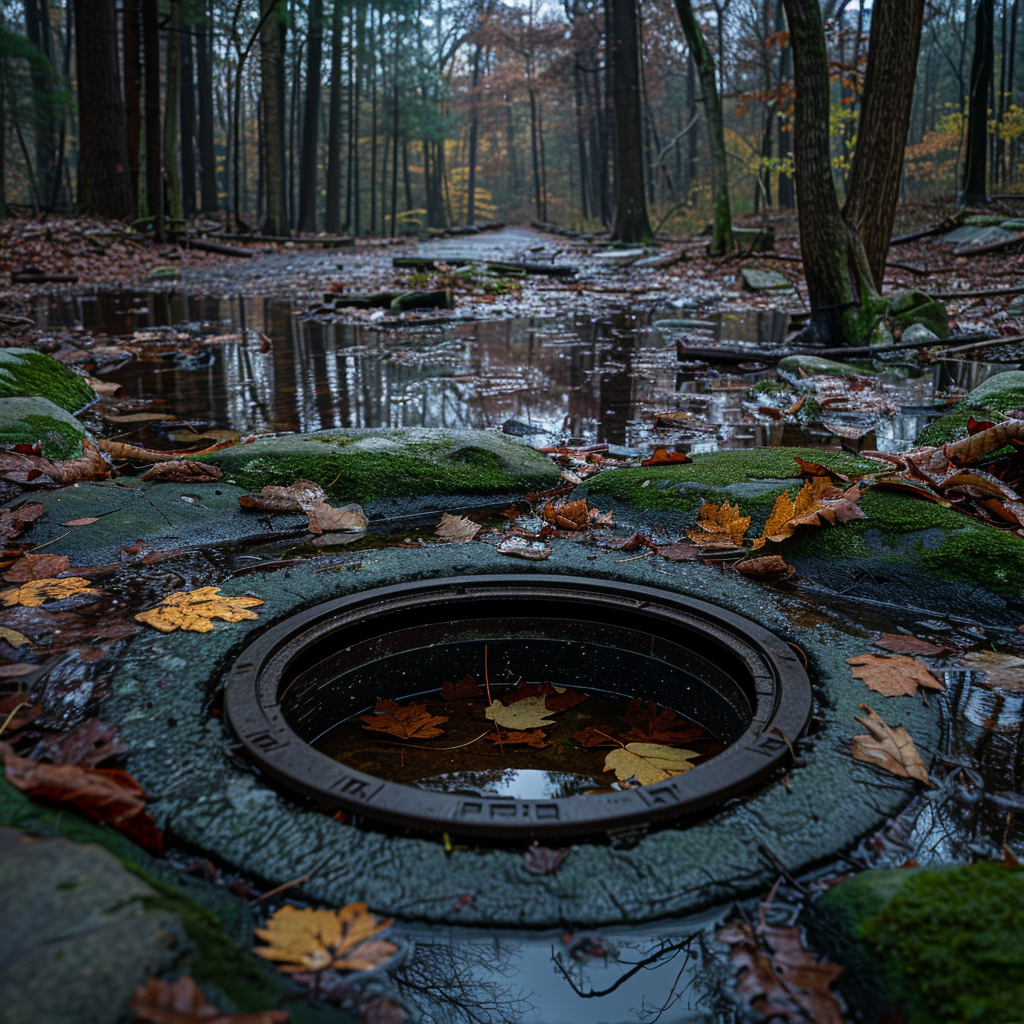
A working drain field is important for a septic system without issues. When the drain field isn’t treating wastewater like it should, you might see overly wet soil or water pooling up. This often means there’s a blockage or some harm to the system. If this happens, you’ll need an expert to check it out and maybe fix or rebuild parts of it. Keeping up with good yard care can stop too much water from gathering near your septic spot, which helps keep your drain field in good shape.
Biological Additives and Their Efficacy
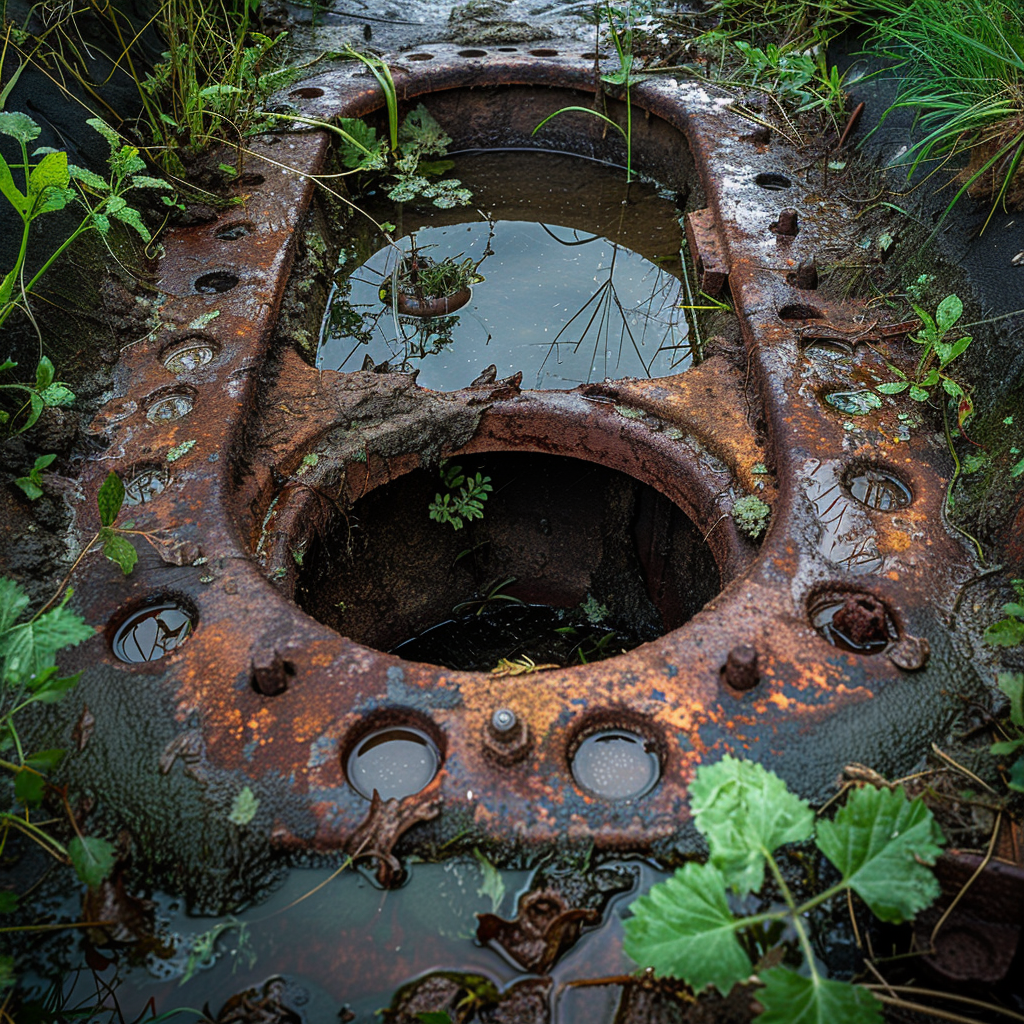
People are talking about whether biological additives can fix septic system problems. These products contain bacteria and enzymes that are supposed to break down waste better. However, there’s no clear answer on how well they work. Some believe they’re good for the septic system’s health, while others say you don’t need them if your septic system is well-cared for. A bit of casual advice is these additives might be somewhat useful, but it’s smart to get expert advice specific to your system before using any.
Lots of times, when we bring up stinky septic tanks, it’s not only about a bad smell; we’re also hinting at possible negative effects on the environment and people’s health. A faulty septic system can leak nasty gases into the air, hurting the quality of the air around us.
Impact of Septic Odors on Air Quality
Bad odors from a septic tank are usually from gases like methane and hydrogen sulfide being released. These gases, aside from smelling awful, can add to local smog if there’s too much of them. So, it’s not just an issue of a gross smell; it’s also about keeping the air clean.
Potential Health Risks Associated with Septic Gases
The gases from septic tanks aren’t only annoying–they can be harmful. For instance, hydrogen sulfide smells like rotten eggs and can be poisonous in large amounts. Methane, another gas from rotting waste, can catch fire and is especially risky in tight spaces. People who breathe in these gases might get headaches or feel sick, and sometimes even more serious problems.
Rules and Smart Ways to Tackle Bad Smells
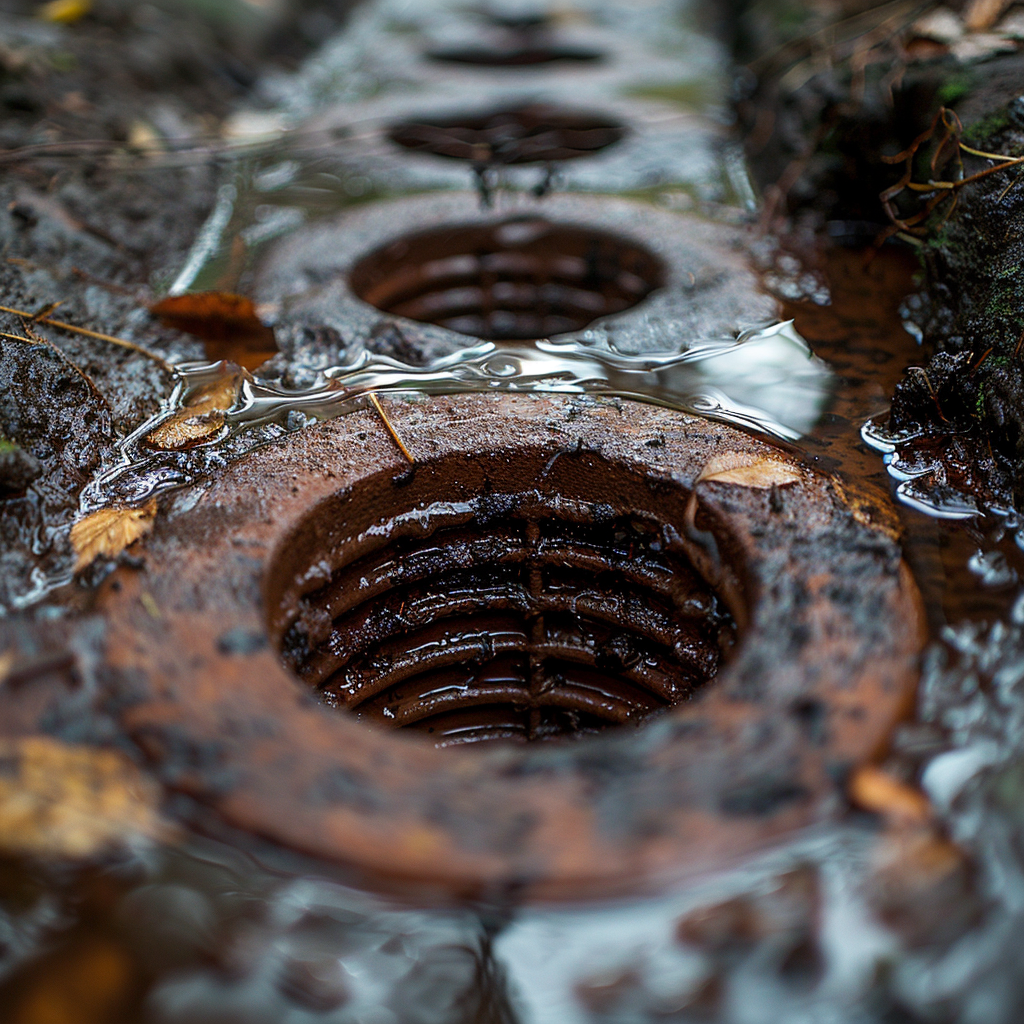
To handle the dangers to the environment and our health, we’ve got tough rules and smart tips for managing stinky septic systems. It’s super important to keep up with regular check-ups to stop leaks and make sure everything’s working right. That means pumping out the septic tank often, and keeping an eye on pipes and where the wastewater goes. Folks with septic systems gotta stick to what the green watchdogs say if we want to keep those nasty smells from getting out.
Even though it may seem like outdoor septic stinks are just annoying, it’s a big deal to take a closer look. They’re actually major environmental and health threats that we need to fight off by really following the rules and staying on top of things.
Fixing Bad Smells from Home Septic Systems
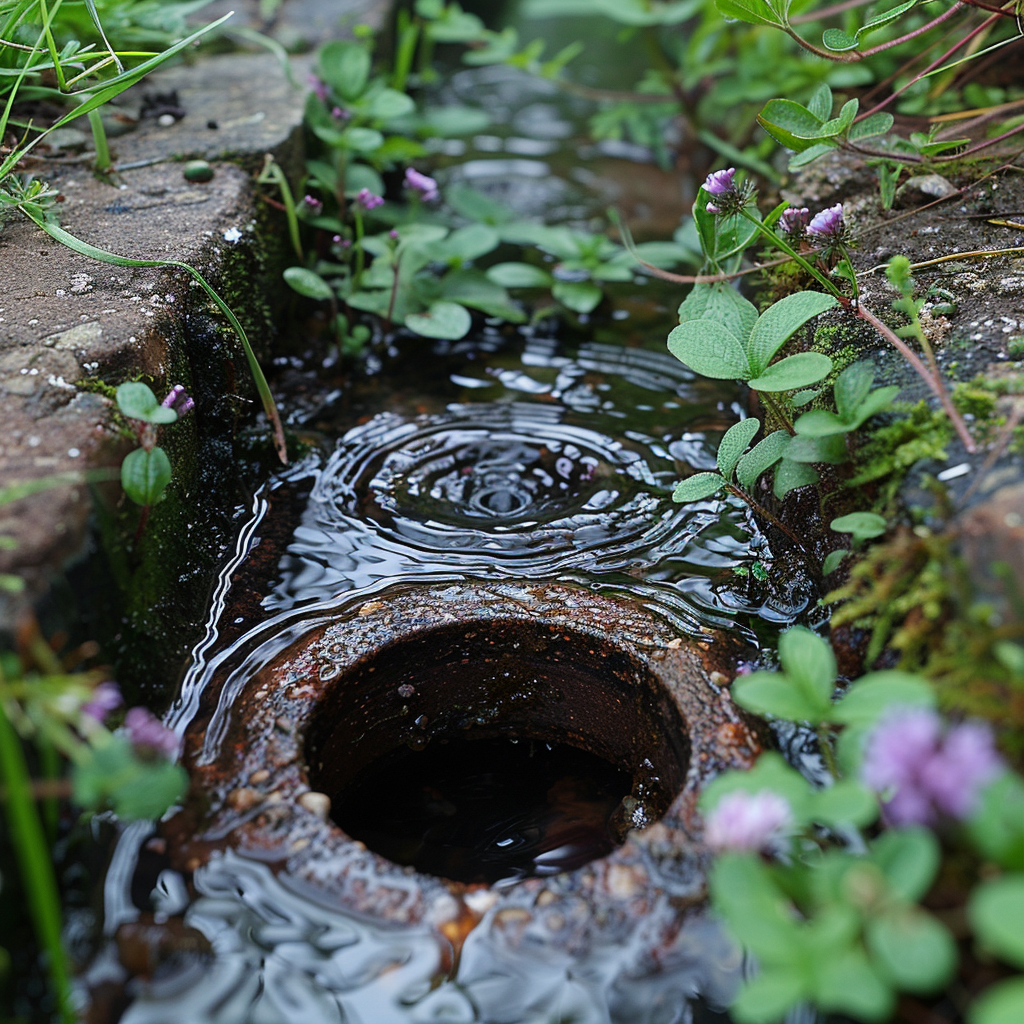
If your septic system at home smells bad, finding the reason and fixing it might involve simple do-it-yourself steps or getting help from professionals for tougher problems. Let’s look at some real cases and how those stinky issues were solved:
Stories from Actual Homes
In a little town, the Joneses got rid of their nasty septic smell by unclogging vents that were stopping odors from getting out. On the edge of a city, the Clarks fixed their septic odor by mending leaks in their tank, which they found after checking it.
Local Septic System Solutions
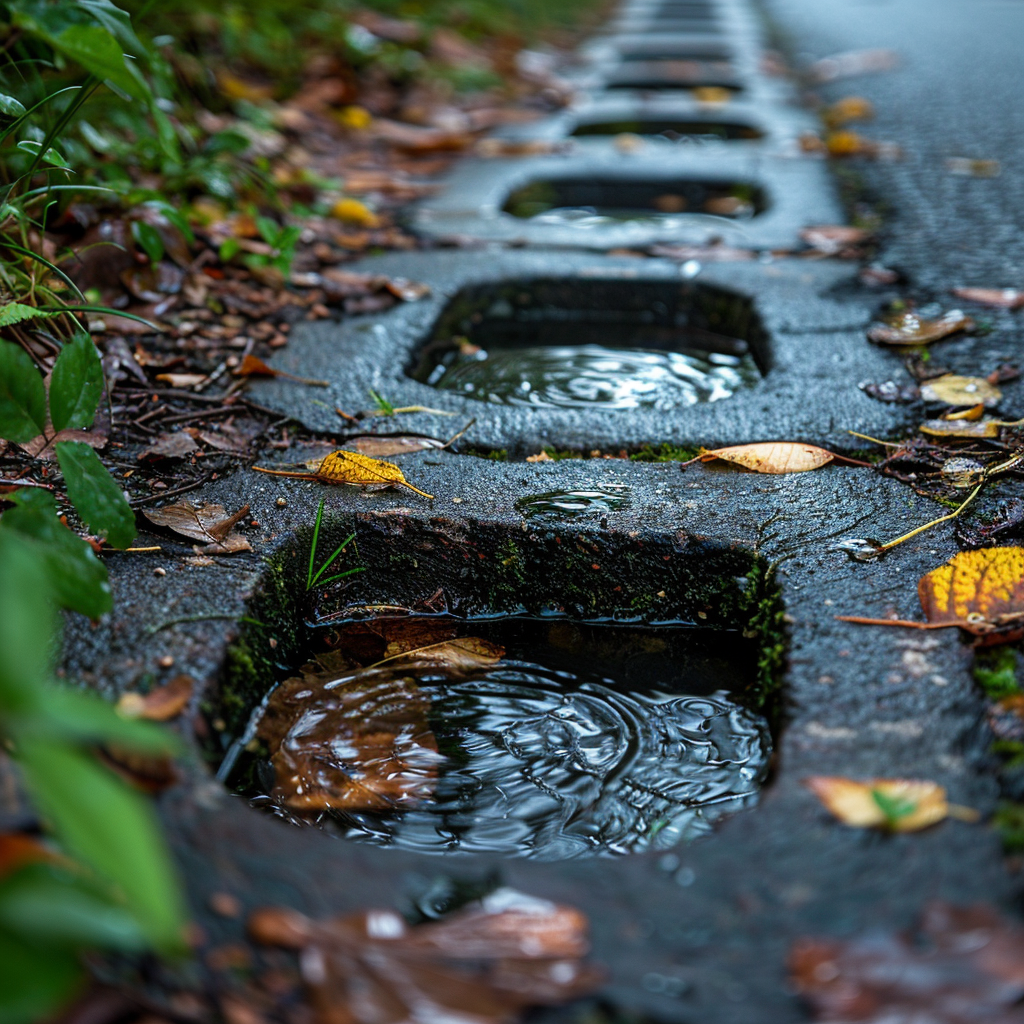
Dealing with foul-smelling septic systems isn’t just a solo job—it’s something that can be tackled using community-wide tactics. The right planning and collective habits can lead to cleaner air for everyone:
– Setting up routine maintenance has proven to cut down on stinky troubles in residential areas.- Teaching people how to toss out trash the right way cuts back on smelly clogs in many places.- Making rules about regular septic tank pumping has wiped out bad smells in a town by the lake.
New Septic System Features To Cut Down Smells
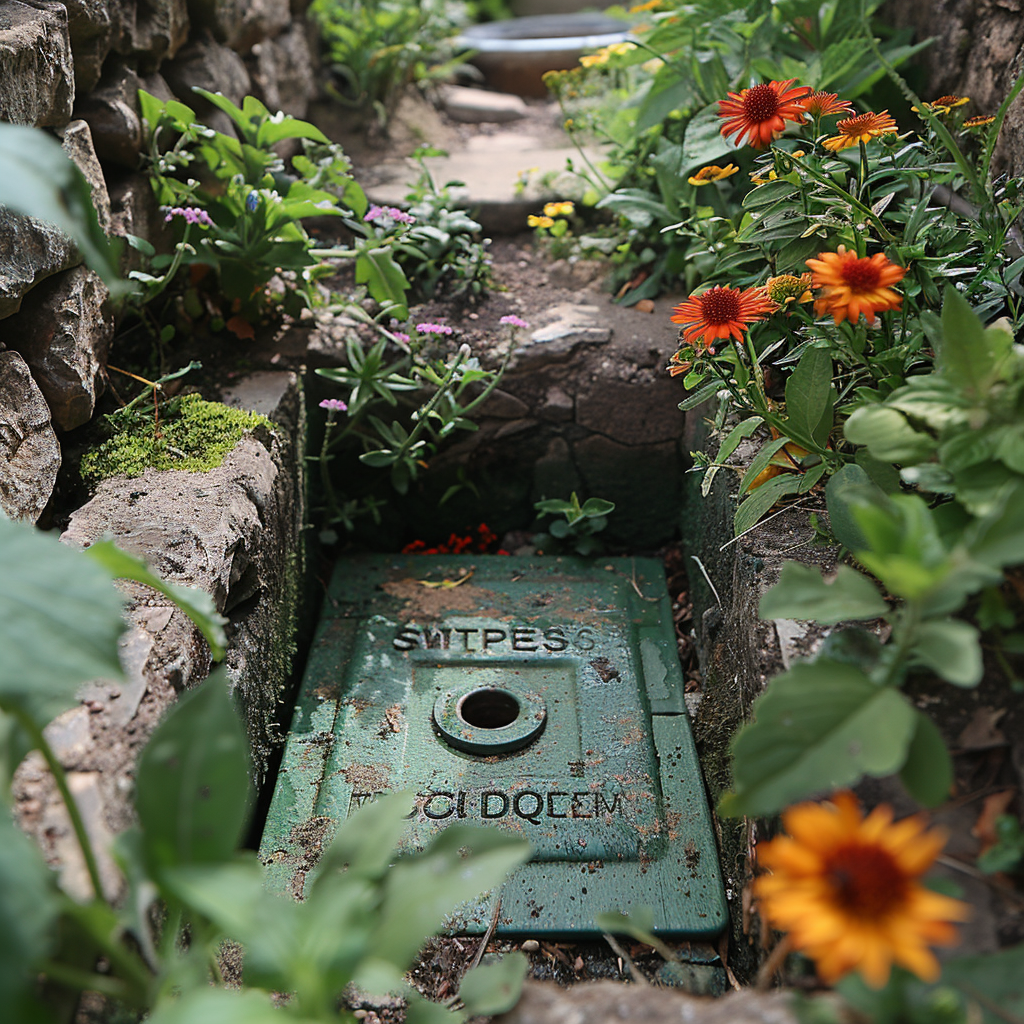
Recent progress and clever designs are paving the way for advanced septic systems that prevent nasty smells before they even begin:
-Carbon filters fitted on vent pipes are viewed as a major advancement in modern homes. They eliminate bad smells and provide fresher air.
-Using new, tighter tank covers is also a step ahead, ensuring that any stinky gases stay inside.
-Waterless toilets that divide pee from poop are at the forefront of technology. They not only save water but also significantly get rid of odors.
Frequently Asked Questions (FAQ)
What indicators signal a septic tank might be emitting odors outside?
There are several tell-tale signs that your septic tank may be the culprit behind unpleasant smells wafting around your property. First, take a look for any standing water or overly lush vegetation near the tank or drain field, as these can hint at leakage or overflow issues. Observe if the odor becomes more pronounced on certain days or under specific conditions, such as after heavy rain or during warmer temperatures, which could suggest volume or efficiency problems with your system. Lastly, an increase in unpleasant smells from drains inside the house could also signify that the septic system is not functioning correctly.
Can an improperly balanced water tank contribute to septic tank smells?
Yes, it certainly can. The balance and volume of water in your tanks play a critical role in the proper processing of waste. If too much water enters the septic system at once—say from heavy appliance use or leaks—it can overwhelm the system, preventing waste from breaking down effectively. This can lead to a backup of sewage and the subsequent emission of foul odors outside your home. Moreover, any imbalance in the water tank can disrupt the delicate biological processes critical to breaking down and treating the waste matter within the system.
How does RV usage influence septic tank odors on my property?
RV holding tanks can affect your property’s septic smells if not managed correctly. When RV tanks, like those from a travel trailer or motorhome, are emptied into a residential septic system, they introduce a sudden surge of waste material and chemicals. This can disrupt the microbial balance in the tank or even cause overflows if done frequently. Moreover, some chemicals used to manage odor in RV tanks are not suitable for septic systems and may harm beneficial bacteria or contaminate groundwater. For comprehensive guidance on this topic, ‘RV Holding Tanks: The Ultimate Guide’ may provide further insights into best practices for disposal.
Could overuse of doggie waste disposals like Doggie Dooley impact outdoor septic smells?
Indeed, pet waste disposal systems such as ‘Doggie Dooley’ operate on a similar principle to septic tanks by decomposing waste underground. However, if these systems are situated too close to your septic tank or are overused without proper maintenance, they can contribute additional organic matter and nutrients to the soil that leach into the septic system, potentially disrupting its balance and efficacy. This extra load can strain the septic tank and may lead to malodorous emissions as the system struggles to cope with the increased demand.
Do environmental factors influence why my septic tank smells outside?
Environmental factors do indeed play a role in outdoor septic odors. Temperature fluctuations can affect bacterial activity within your septic system; colder weather may slow down metabolic processes resulting in incomplete breakdown of waste, while warmer temperatures can accelerate gas production, leading to odor issues. Heavy rainfall can also infiltrate septic tanks and lagoons causing them to overflow, releasing sewage smell into the air. Even seasonal changes in household water usage or changes brought about by events (e.g., more guests during holidays) can put extra strain on the system and cause unusual smells.
Is it possible for additives like copper sulfate to cause my septic tank to smell?
Copper sulfate and other chemical additives are sometimes used to control root infiltration in sewer lines or to reduce septic system clogs caused by tree roots. While these chemicals can be effective at addressing such specific issues, they have the potential to disturb the microorganisms crucial for breaking down sewage within your tank. When the microbial balance is affected negatively, it may result in improper waste decomposition and lead to odor problems outside your home. Therefore, Sara Heger, an expert in this field, advises caution when using any chemical treatments in your septic system.
Can livestock manure management impact my residential septic system odors?
Livestock manure production, when managed in proximity to residential septic systems, can indeed have an effect on odor emanation. If manure is stored near a home’s sewage lagoon or septic tank, runoff from this organic material can percolate through the soil and introduce additional nutrients and bacteria into your system. This not only risks overwhelming the natural biodegradation process but also increases the likelihood of noxious smells forging their way up through the soil and onto your property.
Could oxygen dispersion problems cause outdoor odor from my septic tank?
A lack of proper oxygen dispersion within a septic tank is often at the root of odor problems. Your septic system relies on aerobic bacteria—those that require oxygen—to effectively break down organic matter. If these microorganisms aren’t receiving enough oxygen due to inadequate ventilation or mixing within the tank, anaerobic processes take over, producing sulfide gases known for their rotten egg scent. Aerators and regular maintenance can improve oxygen levels and thus help mitigate unpleasant exterior smells.
How might coffee grounds disposed of in sinks affect my outdoor septic smells?
Disposing of coffee grounds down kitchen sinks can have a negative impact on your septic system and its external odors. These grounds don’t break down easily and tend to accumulate within the tank, absorbing water and potentially leading to clogs. As waste backs up due to impeded drainage, it could force gases up through your home’s plumbing vents or even around the seals of your toilets and sinks, resulting in detectable septic smell around your house.
Do emergency services exist for sudden and severe septic odors?
Absolutely, emergency services are available for prompt assistance when dealing with severe and sudden septic odors. Companies like EarthCare specialize in addressing urgent septic issues like backups, clogs, or leak repairs that could be responsible for strong outdoor smells. These services often employ rapid response teams who utilize specialized tools and expertise to quickly locate the source of the problem, prevent potential health hazards associated with toxic gases, and return your system to proper functioning order.

I’m Tim Robberts, a seasoned wastewater treatment & septic system expert with over 40 years of experience in the field. My career began as a septic tank installer, and I quickly gained a reputation for my attention to detail and commitment to excellence. Over the years, I’ve honed my skills in designing, installing, and maintaining septic systems for residential and commercial properties.
